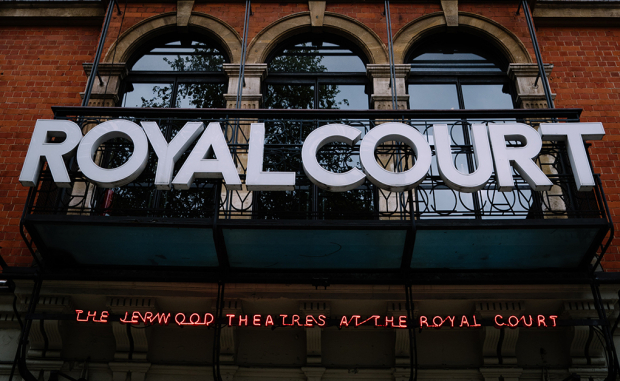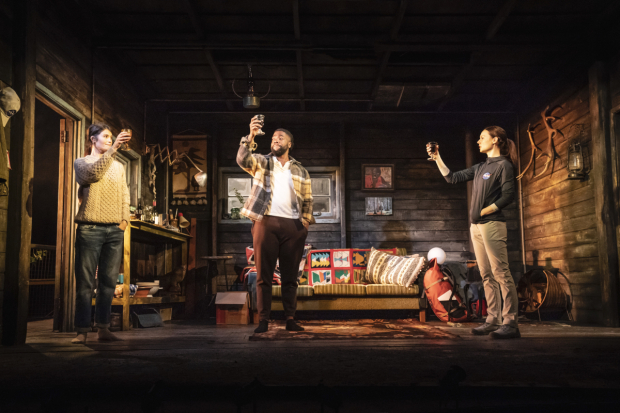
© Helen Murray
If you've followed this website at any point over the last 15 months, you don't need me to reiterate the hardship facing the theatre community as the pandemic and the subsequent preventative measures brought us all to our knees: shows unable to play to in-situ audiences, restricted by seemingly unjustified 1000-person attendee caps, or even seeing outdoor shows unable to open earlier than indoor performances, despite being categorically safer (as proven by government studies).
At the same time, we've been aided only by long overdue financial packages (a large portion of which was paid well later than expected) and often overlooked by a government that has seemingly poured all its energy into making sure sports tournaments have been able to take place unhindered, often with high or full capacity crowds as part of a "pilot" programme.
But even as the theatre industry looks towards the slightly flickering light at the end of a perpetually treacherous tunnel, a new phenomenon has developed: the ominous "ping" – which is wreaking havoc across productions in both the commercial and subsidised sector.
For users of the NHS Covid app (utilised by anyone who checks into a venue, bar or restaurant), the app is meant to trace potential Covid exposures, forcing anyone "pinged" by a seemingly innocent notification to isolate for a maximum of ten days to prevent further spread. Failure to comply can result in a heavy fine.
It's first and foremost important to stress: keeping Covid at bay is one of the most important ways of making sure theatres recover– and that recovery also hinges on bolstering audience confidence. If the app aids a return to life as normal then that is a good thing.
But the consequences are brutal. As has been proven on a number of occasions, if a cast or production member gets "pinged" – the whole show might be forced to close: as evidenced at the Royal Court (pulling a whole week of performances of seven methods of killing kylie jenner), the National (with a cast member indisposed for most previews for an opening production), Walden in the West End (where a backstage team member had to isolate back in May), Joseph (delaying its opening by two weeks) or in the hit drag piece Death Drop, which cancelled its penultimate week at the Garrick. Even theatre critics have had to pull features, and freelancers, left largely unsupported during the pandemic, have had to cancel precious and essential work.

© Johan Persson
Theatre leaders are despairing: as Bristol Old Vic's artistic director Tom Morris said on Twitter: "the relaxation of social restrictions inevitably pushes the numbers of COVID contacts rapidly upwards…so if your business requires groups of people to work together who might suddenly be instructed to isolate – you're doomed." Two producers in the queue behind me at the opening night of Under Milk Wood were also moaning at these impromptu app-based terrors.
We're going to leave aside the equally devastating consequences of a whole production being forced to isolate by a single positive test, as stated in recent legal action initiated by Lloyd Webber, Mackintosh, Friedman and more.
If there were no viable alternatives to the "pinging", then it might be seen as a cruel necessity. But in a world where threadbare arts organisations are already screaming out for a long-teased state-backed insurance scheme to aid those whose plans are interrupted by Covid, what is all the more frustrating is that alternatives do exist: in early May, the government tested a scheme whereby those "pinged" by the app had to undertake free testing for a period of time in order to carry on working and functioning as normal. 40,000 people took part in the initiative, including Minister Michael Gove after a trip to Portugal, and there doesn't seem to be any reason why it can't now be rolled out nationally. Even if the isolation span was cut down to a few days with supplementary testing, this could aid productions immensely.
Some argue that, testing and trimming these timings is also a flawed attitude: with better financial support for venues (including the aforementioned insurance) meaning companies will be able to add cast members in case of rogue "pings", while those forced to isolate may be properly compensated.
This may, hopefully, not be as grave an issue for too much longer: slightly tbc reports from national newspapers also suggest that the ping policy may be pulled for those who have received both doses of their vaccine (embracing more of a US-style model). Flaws with this are pretty obvious: most under 30, representing a large and vital part of the arts and hospitality sector, won't have a chance to have their second dose for a long while.
For now, we must wait to hear more on 19 July plans (when social distancing might be eased and capacities can be raised). Even if open, theatres might find that the show could be over when the Covid app pings.












